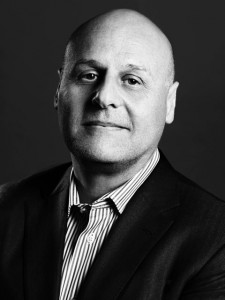
What is transformation of an enterprise, why do we need it and how can we achieve it? Dr. Domenico Lepore, Founder of Intelligent Management Inc. outlines how we can use our brains to make systemic change for a sustainable future.
From exile to freedom: splitting the Red Sea
Stupidity, as Dr. Deming has reminded us, is a choice. We are not talking about a low IQ but the refusal to use the mental capacity we have. We do not lack the knowledge needed to build and operate a truly systemic company guided by the idea of throughput; what we lack is the ability to decide to use that knowledge. The difficulty is in the transition from knowing what to do to making it happen. Why is this so difficult? Once we take action, we change our reality and nothing is quite the same. This is profoundly linked with the way we see ourselves in the world. Taking those steps is scary. When the Red Sea parted for Moses, it was not simply divine intervention, but divine intervention coupled with human decision and action. Torah scholars inform us that the sea did not part until someone took the first step into it. As Deming says, it is all about transformation.
Industry and a new ecology of wealth
Our goal, as individuals and organizations, should be nothing less than transformation. Into what? Into being the fastest and most effective vessels for making our potential real and happening. The most obvious and suitable environment for transformation is Industry. This is where raw material is literally transformed into saleable goods. I truly believe that the solidity of any country’s economy must be based on a strong and competitive Industry because that is where materials, processes and methods guided by human intelligence can produce the maximum wealth. Industry is the natural cradle for the development of a new ecology of wealth. We can transform Industry through a systemic approach. Before we look at this in a more hands-on light (I purposefully do not say ‘practical’ because to paraphrase Einstein, nothing is more practical than a good theory), we need to step back and examine the cultural and philosophical forces that can inhibit such a transformation, and identify the pattern that will promote and sustain it.
Not Change Management but transformation
Our goal when we adopt a truly systemic approach in an organization is to transform the way the organization pursues its goals. It is not Change Management, nor re-engineering, nor improving, but transforming. The algorithm of the Decalogue methodology that I contributed to develop is designed precisely for this. It is not Kaizen, it is not Lean, and it is not Business Process Re-engineering: its goal is not the achievement of better performances because they are a natural by-product; it is a complete paradigm shift in the way the business of the organization is conducted. The transformational nature of the Decalogue is reflected in its ambition to bring together the elements of the New Economics advocated by Dr. Deming and the largely unexplored power provided by the thinking approach to systems of the Theory of Constraints (TOC). Dr. Goldratt has labelled this thinking as “common sense” and called its offspring “thinking process tools”. After almost 20 years of relentless work I am adamant that there is nothing common about the “sense” Dr. Goldratt talks about and the “tools” he designed resemble tools just like my three pointer resembles Kobe’s. As for thinking in a way that produces coherent results, this seems to be one of mankind’s greatest challenges.
A new epistemology of wealth creation
In a systemic attempt to provide a unified approach to economics, finance and management, the Decalogue leads us inevitably to create the foundation for a new epistemology of wealth creation, something that through rigorous investigation separates knowledge (what we know and it is part of who we are) from superstition (what we believe is true and for which we have no, or a shaky, basis of explanation). In a world where the only cure to the folly of the financial markets seems to be stricter rules on the trading of derivatives and salary caps, and where financial institutions still believe they can perpetuate moral hazards because the government will eventually bail them out, we need to dig deeper into what causes the state we are in and find an option on how to come out of it. That is the ultimate purpose and scope of the Decalogue.
By Dr. Domenico Lepore, Founder of Intelligent Management Inc., from ‘Sechel: Logic, Language and Tools to Manage Any Organization as a Network of Projects‘
Sign up to our blog here and shift your thinking towards broader, systemic possibilities for yourself and your organization. Intelligent Management provides education and training on systemic management, W. Edwards Deming’s management philosophy and the Theory of Constraints (Decalogue methodology) in North America and Europe.
About the Author
Angela Montgomery Ph.D. is Partner and Co-founder of Intelligent Management and author of the business novel+ website The Human Constraint that has sold in over 20 countries. She is co-author with Dr. Domenico Lepore, founder, and Dr. Giovanni Siepe of ‘Quality, Involvement, Flow: The Systemic Organization’ from CRC Press, New York.





Leave a Reply